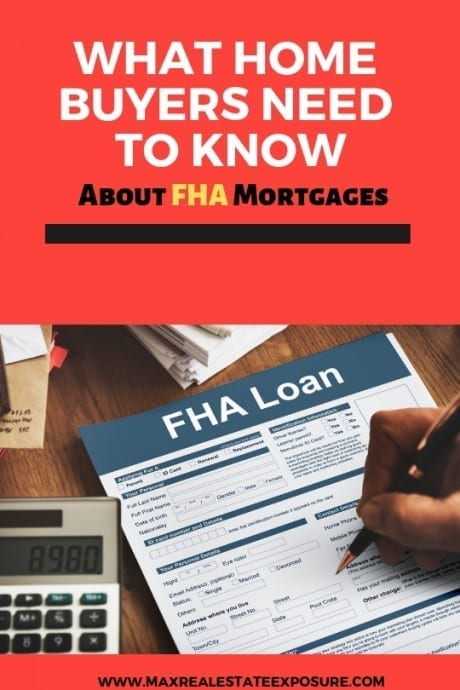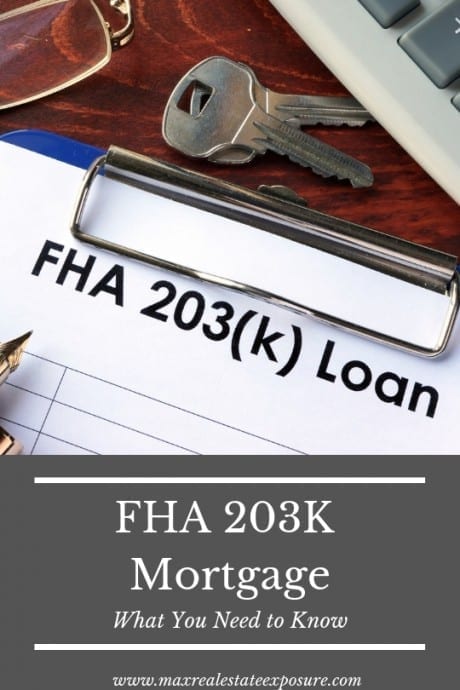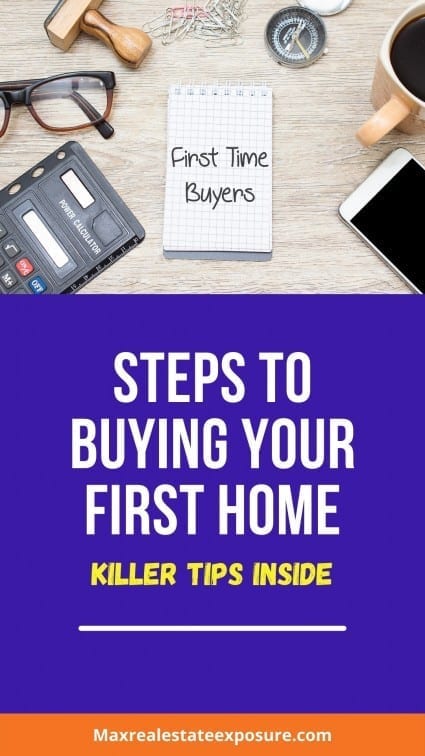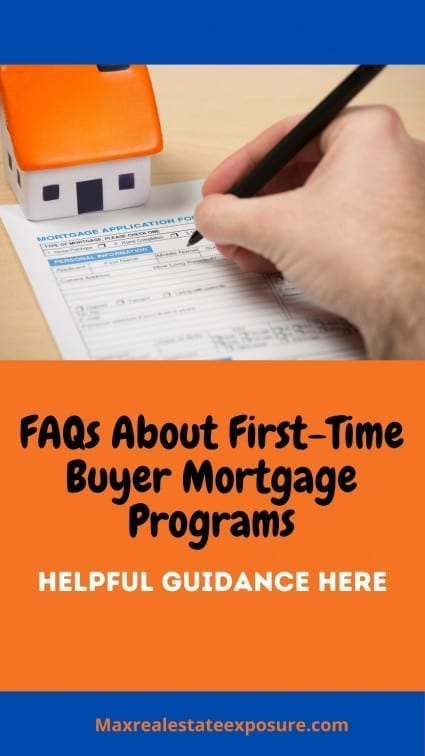11 Financing Programs for First-Time Home Buyers
 Are you looking to find a first-time home buyers program?
Are you looking to find a first-time home buyers program?
A first-time home-buying loan is something that many folks ask both real estate agents and mortgage brokers about.
It’s an excellent question to ask as there are numerous first-time home buyers programs to consider.
Understanding how to get a mortgage is one of the first steps to homeownership.
The improvement in recent years of the real estate market has benefited many people, from buyers to sellers to investors.
But even with relatively low-interest rates and some affordable housing options in the right areas, there is still a big gap between the number of people who want to own a home and those who can make a purchase.
Even affordable homes cost more than the average person has in their bank account, which means getting a mortgage is inevitable.
Unfortunately, standard mortgages are not always accessible for many people, especially first-time home buyers.
The difficulties first-time homebuyers face when getting a mortgage are no mystery. However, several first-time buyer programs are designed to help buyers like you get a mortgage and purchase a home.
One or more first-time home buyer loans might be perfect for your situation. Part of deciding which option to choose will entail choosing the right lender. Not every mortgage lender has the same programs.
Some mortgage companies specialize in some loan types but not others.
Working with a mortgage broker is often a good financial move to determine which loan options work best. It is, in fact, one of the first steps in preparation for becoming a homeowner.
Check out the list of first-time buyer mortgage programs below and pursue any you think you could qualify for.
A first-time buyer’s loan may offer just what you need to become a homeowner.
What Are First-Time Home Buying Loans?
A first-time home buyer program is specifically designed for those buyers purchasing their first home. They are home-buying loans with lower down payment requirements and possibly more relaxed financial qualifications.
First-time buyer programs work by making it more straightforward to become a homeowner.
First-Time Home Buyer Programs For 2023
Here are the first-time homebuyers programs we will be reviewing in-depth:
- USDA Loan
- Good Neighbor Next Door
- FHA Loan
- VA Loan
- Energy Efficient Mortgage
- Native American Direct Loan
- FHA Section 203K Loan
- Fannie Mae and Freddie Mac Loans
- Fannie Mae’s Home Path Ready Buyer Program
- Grants and Programs From Local Entities
- Conventional Loan Financing
When it comes to mortgage programs for first-time buyers, there are many nuances in each, so it makes sense to do plenty of due diligence. Let’s take a deep dive into these mortgage programs.
1. USDA Loan
Many people have never heard of this first-time buyers program, but it does exist and offers impressive benefits for those who can take advantage of it.
Managed by the U.S. Department of Agriculture (USDA), the program targets homes purchased in rural areas. But don’t think you have to have plans to build and manage a farm to get help from the program.
Many first-time homebuyers opt for this financing program because they can put no money down.
The program’s income limitations, though, may keep you from qualifying. The location of the property also matters.
With this type of loan product, there are restrictions on the number of people living in the community for which a mortgage can be given.
For USDA loans, the population of the area you are looking at needs to be under thirty-five thousand people.
To make your way seamlessly through the program, you must have a 640 or higher credit score. Qualifying for a USDA loan is still possible if you have a credit score below 640.
The process is more complicated and requires more documentation to verify that you can make your payments.
With a USDA loan, you may not have to have a down payment, and you can expect your mortgage to be fixed month to month.
Look at the complete requirements for a USDA loan and lots of other helpful information. A USDA loan is one of many first-time home buyer programs worth considering.
2. Good Neighbor Next Door
The Good Neighbor Next Door is another mortgage program under the radar for many first-time homebuyers, which is a shame because it is pretty exciting for those who qualify.
The program is sponsored by HUD and targets those in the public service sector, including police officers, firefighters, pre-K through 12th-grade school teachers, emergency medical technicians, etc.
If you qualify, you may get a 50% home price reduction if you purchase property in under-served areas classified as “revitalization areas.”
You can search for qualifying homes on the site for Good Neighbor Next Door. Remember, you must stay in the house for at least 36 months after purchase.
This type of loan is not going to be worthwhile for everyone. For some folks, however, it could be a godsend.
This first-time home buyers program works best for those in one of the qualifying industries.
3. FHA Loan
 Out of all the first-time home buyers programs, an FHA mortgage is probably the most popular.
Out of all the first-time home buyers programs, an FHA mortgage is probably the most popular.
An FHA loan is a top-rated first-time home-buying loan.
Many home buyers opt to get a loan through FHA mortgage providers.
The Federal Housing Association is part of the U.S. Department of Housing and Urban Development (HUD).
With an FHA loan, you have the FHA’s backing, making you much more appealing to lenders. The FHA will pick up the tab if you cannot pay your mortgage.
FHA loans are desirable for most homebuyers because of their favorable terms, small down payments, competitive interest rates, and lower closing costs than standard mortgages.
It would help if you had a credit score of 580 or above to get the best terms for the loan, including a down payment of as little as 3.5%.
If your credit score is lower than 580, you will need a 10% down payment.
Quite often, borrowers look at an FHA loan when they don’t have a twenty percent down payment.
With an FHA mortgage, you don’t need to pay private mortgage insurance. PMI can be expensive. Homeowners continue to pay a useless fee until they have established twenty percent equity.
The FHA mortgage is a first-time buyer mortgage program worth checking out. This type of loan captures a significant percentage of the first-timer loan market.
If you want to purchase a house that needs work, an FHA 203k loan is an excellent option. It is designed for those buyers who are buying a fixer-upper.
4. VA Loan
For veterans, surviving spouses, and active-duty military personnel, VA loans offer a great way to get into a home at a favorable rate with no down payment.
It is undoubtedly a first-time homebuyer program worth considering when you have served in the military.
The VA loan program is quite generous—you do not need a down payment, but you also get competitive interest rates and don’t have to pay for private mortgage insurance (PMI) either.
And if your loan becomes too difficult to pay, you can get help from the VA to negotiate better terms with the lender. Take a look at a complete summary of benefits for VA mortgages.
If you have or are servicing in the military, the VA loan is a first-time home buyer loan that should be researched.
VA mortgages are the best first-time buyer program for those serving our country.
5. Energy Efficient Mortgage (EEM)
The EEM program was created to encourage homebuyers to improve the energy efficiency of their homes.
These loans are insured through the FHA or VA departments, making it possible to improve the house you purchase without increasing your down payment.
Instead, the cost of the energy-efficient improvements is rolled into the primary loan.
You can find a variety of potential green improvements that you could make to your new home. Some of the most popular include installing double-paned windows, improving your HVAC system, and adding new insulation to improve energy retention.
This loan product can also be used under the FHA 203k rehabilitation loan initiative, which we’ll cover shortly.
The Energy Efficient Mortgage is an excellent program for first-time buyers who want to make green improvements but don’t have the money to do it upfront.Click To Tweet6. Native American Direct Loan
As the name implies, this mortgage program only applies to specific qualifying buyers. The Native American Veteran Direct Loan program was implemented in 1992 to help Native American veterans to purchase homes on federal trust lands.
The loans are obtained through the VA and offer many of the same benefits as a standard VA loan.
Closing costs are low, the interest rate is fixed for 30 years, no down payment is required, and the need for private mortgage insurance (PMI) is waived.
Additional perks with this program include the ability to borrow up to the FannieMae/FreddieMac conforming loan limit on a no-down-payment loan in most areas—and more in some high-cost counties.
The Native American Direct Loan is a first-time homebuyer program that few people hear about.
7. FHA Section 203(k)
If you want to purchase a house that needs work, an FHA 203k loan is an excellent option. It is designed for those buyers who are buying a fixer-upper.
 Some home buyers are primarily interested in purchasing a home to fix it up and add value to the property.
Some home buyers are primarily interested in purchasing a home to fix it up and add value to the property.
Whether looking for a fixer-upper makes sense financially or because you love DIY work, you should look at Section 203(k) rehabilitation program.
With this loan, you can make a down payment of as little as 3% and get enough money through the loan to make the repairs you need to make to the home.
The funds you borrow for home improvements are included in your primary loan, putting you in a much better financial position than you would be if you had to get a separate loan.
Over my thirty-seven years as a real estate agent, the 203k loan has been a great financing option for a few of my clients.
They work wonderfully for those properties that are being “purchased as is.” You know, the ones I mean – A little rough around the edges.
Buyers can add their personal touch, transforming what some might call a dump into a fantastic home.
Look at this helpful resource for finding a 203k lender in your area.
Given that many buyers entering the market for the first time don’t have a large budget, the 203K loan works well for properties that are not turnkey.
It is no wonder the FHA 203k is such a popular first-time home buyers program.
8. Fannie Mae and Freddie Mac Loans
Both of these mortgage companies are operated by the federal government, which means they specialize in helping low and mid-income borrowers purchase homes.
If you get a loan through your lender backed by either of these companies, you should be able to get a competitive interest rate and pay a low down payment.
Fannie Mae and Freddie Mac loans are programs for first-time buyers that work well when you have strong credit but not much of a down payment available.
9. Fannie Mae’s Home Path Ready Buyer Program
If you are interested in buying a foreclosure, the home path loan is a first-time home buyer program worth researching.
A Home Path Loan is geared towards buyers interested in buying a foreclosed or bank-owned Fannie Mae home. It’s worth noting that these properties will be less prevalent, given that we are no longer in a recession.
The chances of finding one of these homes will be more of a challenge. However, eligible borrowers can get up to 3 percent in closing cost assistance toward the purchase if they find a Home Path Property.
Borrowers are required to take an online first-time buying education course before qualifying.
10. Grants and Programs From Local Entities
The federal programs for first-time home buyers are great, but they are not the only option available in many areas. It is worthwhile to explore what local options you may have for grants and other homebuyer programs.
Your state or even your local community may have a plan that you qualify for, one that will make buying your first home more accessible and more financially sound.
For example, here in my home state of Massachusetts, they have a great financing option known as the Mass Housing Loan.
There are some specific benefits of the Mass Housing loan, including the following:
- Loan servicing is done in-house.
- Flexible underwriting and income limits for qualified buyers.
- The ability to get down payment assistance to qualifying borrowers for up to 3% of the purchase price or $12,000, whichever is less.
- A Mass Housing Mortgage can finance a home’s purchase and rehabilitation/repair, similar to a 203k rehabilitation loan.
You can also consult your real estate agent to see if they know of any programs you can take advantage of.
A reputable Realtor will be aware of all the first-time home buyer programs you could benefit from and help you choose the best for your circumstances.
11. Conventional Loan Financing
 Conventional loans are, of course, the most common type of mortgage funding first-time buyers use.
Conventional loans are, of course, the most common type of mortgage funding first-time buyers use.
They are also more popular than any other kind of loan by a wide margin. Conventional loans offer fixed and adjustable interest rates.
A conventional loan is not insured or guaranteed by the government.
Private lenders back these loans, and the borrower usually pays for their insurance. You can now get a conventional loan with only a three percent down payment.
Borrowers who opt for a conventional loan and put in less than a twenty percent down payment will be required to pay private mortgage insurance.
It may take a while, but you can cancel your PMI once you reach the twenty percent equity threshold.
First-Time Buying Programs For Bad Credit
Some of the first-time buying loans we have mentioned are helpful for those without the best credit scores.
Learn more about bad credit home loans in this resource.
Benefits of First-Time Home Buyer Programs
The benefits of first-time homebuyer programs are obvious – they allow more people to become homeowners.
Suppose you have steady employment, a good credit score, and meet the income guidelines. In that case, these first-time homebuyer programs can be your ticket to start building equity and creating a more positive financial future.
The sooner you break free of rent, the better, as you support someone else. By owning a home, you can become more financially independent as long as you have a long-term horizon.
What Can I Do if I Don’t Have Great Credit But Want to Buy My First House?
If you don’t have extreme credit issues and want to buy your first home, I suggest signing up for Credit Karma. Credit Karma is a free service that provides you with financial advice to make the best decisions for credit.
Many people make lousy credit decisions because they don’t know better. Credit Karma will provide you with the necessary information daily on how to get out of a credit problem.
By following their advice, you will increase your credit scores and become a worthy borrower over time.
You can monitor your credit scores and see how they improve over time.
Once your credit is back on track, you can start looking over first-time homebuyer programs.
Considerations With First-Time Home Buyer Programs
When considering a home purchase, it is essential to remember that many first-time homebuyer programs include those who have not owned a home in the last three years.
Due to budget constraints, if you are looking at homes that need work, it will be vital to know the condition requirements for some first-time homebuyer programs.
For example, FHA and VA loans have condition guidelines that must be met to get a loan. It will be crucial to study these conditions before looking at properties.
You will need to know upfront if you will be willing to tackle specific projects with these first-time buyer loans.
Once you know what you can comfortably spend, speaking with a knowledgeable lender who understands the various first-time buyer programs will become necessary.
A lender with a pulse on the programs that best suit your needs could save you thousands of dollars in the long run. An excellent mortgage broker will walk you through the various first-time buyer programs and explain the pros and cons of each.
You can then decide which one works best for your particular financial situation. Knowing the minimum credit score requirements to buy a home is also vital. Each mortgage program will have different guidelines.
Steps to Buying Your First Home
 Before looking at houses or even picking a first-time buyer loan program, there are a few things you need to do first.
Before looking at houses or even picking a first-time buyer loan program, there are a few things you need to do first.
The steps to buying a house are relatively simple.
Establish a Home Buying Budget
Deciding on your home-buying budget is crucial. You need to set your budget, not necessarily what the lender tells you you’re qualified to purchase.
It would be best if you were comfortable paying your mortgage each month.
Speak With Multiple Mortgage Lenders
When buying a home for the first time, it is vital to speak with at least a few lenders.
You will want to shop rates, terms, and programs to ensure you get the best first-time buyer program for your unique financial situation.
Get Pre-Approved For a Mortgage
Once you have selected the lender you plan on using, you’ll want to go through the mortgage pre-approval process and get a letter from the lender.
Home sellers will expect you to have pre-approval from a reputable lender to consider your offer on their home.
There will be document requirements based on the first-time buyer mortgage you choose.
Be sure to get all your questions to the mortgage lender answered satisfactorily before committing.
Find an Excellent Buyer’s Agent
Finding an exceptional buyer’s agent should be top of your priority list.
One of the most crucial things you can do when buying your first home is to find an agent you can trust. You’ll want a local buyer’s agent with a solid reputation.
The most important aspect of having a buyer’s agent is getting solid advice and having someone who doesn’t need a sale and is more concerned about you making the best housing decision.
Never Buy From The Seller’s Agent
It would be best never to go directly to the seller’s agent. One of the typical first-time homebuyer mistakes is going directly to the listing agent, thinking you’re going to get a “deal.”
Not having a buyer’s agent protecting your interests is a dumb move. Going directly to the seller’s agent creates the potential for dual agency, a conflict of interest.
Dual agency is illegal in some states. Please don’t do it!
Start Shopping For Homes
Once you have an agent, it will be time to start looking at homes. Make sure you are looking at properties that fit your budget or will qualify under the first-time home buyers program you’re going to choose.
Keep in mind that location is a significant variable when purchasing a home. Most real estate agents will tell you that your chosen neighborhood will be just as important as the home.
Make an Offer on a Home You Love
Once you find the property that suits your needs, you’ll want to make a realistic offer. The offer you make should be based on comparable sales.
Your buyer’s agent should provide you with these comps and thoroughly review each, so you are confident in a proper offer amount.
When finding a home, you never want to make a lowball offer as you will likely turn off the owner. It is always best to make a realistic offer.
Provide an Earnest Money Deposit
If you land the home you want, the next step will be providing an earnest money deposit along with your offer. Earnest money is what holds the sale together.
It gives the seller monetary assurance you’re not going to walk from the sale. Speak to your real estate agent upfront about the amount of earnest money you’ll be required to have.
It can vary from location to location. See everything you need to know about earnest money in the helpful reference.
Get a Home Inspection
One of the most critical steps in the home-buying process is getting a home inspection. You will want to find a thorough home inspector you feel confident in.
Buying a lemon is not a pleasant experience and can cost you significant money. If you trust your real estate agent, ask them for a recommendation for a top home inspector.
Get Your Homeowner’s Insurance Squared Away
Before closing, you will want to get your home insurance squared away. It will be worth shopping around for a provider.
Speak to whoever is doing your car insurance first, as you will likely get a break in the insurance cost by bundling it with them.
Hire a Professional Mover or Rent a Moving Truck
Another critical step in buying a home will be locking in one of the best moving companies or renting a moving truck.
Moving is one of the most stressful parts of buying and selling a home, so hiring a professional or reputable truck rental company makes sense.
Our guides will provide some great suggestions.
Change Your Address
Do not forget to make your address change with the USPS! When it comes to moving tasks, this should be at the very top of your priority list.
By not making your address change before your closing, there is an excellent chance you will not receive important mail.
The second part of changing addresses will be notifying everyone that needs to know you’re moving. Follow the change of address checklist.
Prepare For Closing
There are many things to do to prepare for your closing, including a final walk-through of the property. It will be necessary to ensure the home’s condition is the same as when you made your offer.
You’ll need an ID and down payment funds when heading to your closing. Make sure you speak to your lender in advance to make sure you’re bringing everything you need.
You can also look at this house closing checklist for assistance.
Moving Into Your New Home
Once the property has been recorded, you will be given keys to your home. Now it is time to celebrate.
You have made it! You are now the proud owner of your first home. Moving forward, you’re going to need to be fiscally responsible.
Over time you may even consider renovating and taking advantage of one of the popular home improvement loans.
First-Time Home Buyer Mortgage Programs in Massachusetts
If you are looking for a Massachusetts first-time buyer mortgage, feel free to reach out for assistance. I’ll put you in touch with the mortgage lender I’ve been using for the past fifteen-plus years.
He will know the appropriate first-time home-buying loan that will work best.
Additional Helpful First-Time Home Buyer Resources Worth Studying
- Mortgage mistakes – when buying a house, you must avoid making one of these common mortgage blunders at all costs.
- Mortgage tips for first-time home buyers – see some of the best advice on getting a mortgage for your first home. Explore some of the popular first-time homebuyer programs.
- What not to do before buying a house – see practical tips to avoid making mistakes when purchasing a home.
- How to increase a credit score – learn how to up your credit score, so you get the best loan terms when buying a house.
- How to get the best interest rate – see how to get the lowest mortgage interest rate and other favorable terms.
- Things you should do before buying a home – see twenty excellent tips on what you should do before going out and buying a house.
- How to get your mortgage approval taken away – of course, this is the last thing you want to do. Make sure you understand the mortgage mistakes that can be a loan killer.
Use all of these home-buying resources to educate yourself on buying a home.
FAQs About First-Time Home Buyers Programs
 1. What qualifies someone as a first-time homebuyer?
1. What qualifies someone as a first-time homebuyer?
The obvious answer is someone who has never owned a home before, but the definition of a first-time buyer is more than that.
If you have not owned a house in the last three years, you could be considered a first-timer.
Even if you are purchasing a home with a husband or wife who has bought a home, you’re considered a first-time buyer.
2. What is The Best First-Time Buyer Program?
There is no best program. The answer depends on the financial circumstances of the individual.
One first-time buyer program may be better for one person but not for the next.
It is essential to research all the home-buying programs to know which makes the most sense.
3. What Are Government Mortgage Programs?
Government mortgage programs are those that the federal government back.
Two of the most recognizable loan programs are an FHA and VA mortgage.
4. What First-time Buyer Mortgage Programs Are No Money Down?
The VA loan and the USDA loan are the two mortgage programs where you don’t need a down payment. It would help if you qualified to get one of these mortgages.
5. How Do You Find Mortgage Assistance Programs?
Besides speaking with a local lender or mortgage broker, you can search online for mortgage assistance programs near me. Doing this search could potentially see lenders near your location offering mortgage assistance financing.
Final Thoughts on First-Time Home Buyer Programs
If you are a first-time homebuyer, hopefully, you have found this resource helpful. There are many first-time buyer loans worth exploring. Take your time and pick one that works best for your financial circumstances.
Additional Real Estate Articles From Professionals
- Crucial advice for first-time buyers via Luke Skar – see excellent tips when buying a home for the first time.
- Guidance for buying your first home via Jamohl DeWald – Use these helpful tips from a real estate pro working with first-time buyers.
- How to purchase your first fix and flip house via Paul Sian – See terrific advice on buying a flip home to make money. Don’t forget that 203K is a first-time home buyer program to explore when a home needs work.
Use these additional top-shelf resources to make the best decisions when buying a home for the first time.
About the Author: The above Real Estate information on mortgage programs for first-time buyers was provided by Bill Gassett, a Nationally recognized leader in his field. Bill can be reached via email at billgassett@remaxexec.com or by phone at 508-625-0191. Bill has helped people move in and out of many Metrowest towns for the last 37+ years.
Are you thinking of selling your home? I am passionate about real estate and love sharing my marketing expertise!
I service Real Estate Sales in the following Metrowest MA towns: Ashland, Bellingham, Douglas, Framingham, Franklin, Grafton, Holliston, Hopkinton, Hopedale, Medway, Mendon, Milford, Millbury, Millville, Natick, Northborough, Northbridge, Shrewsbury, Southborough, Sutton, Wayland, Westborough, Whitinsville, Worcester, Upton, and Uxbridge MA.


 1. What qualifies someone as a first-time homebuyer?
1. What qualifies someone as a first-time homebuyer?